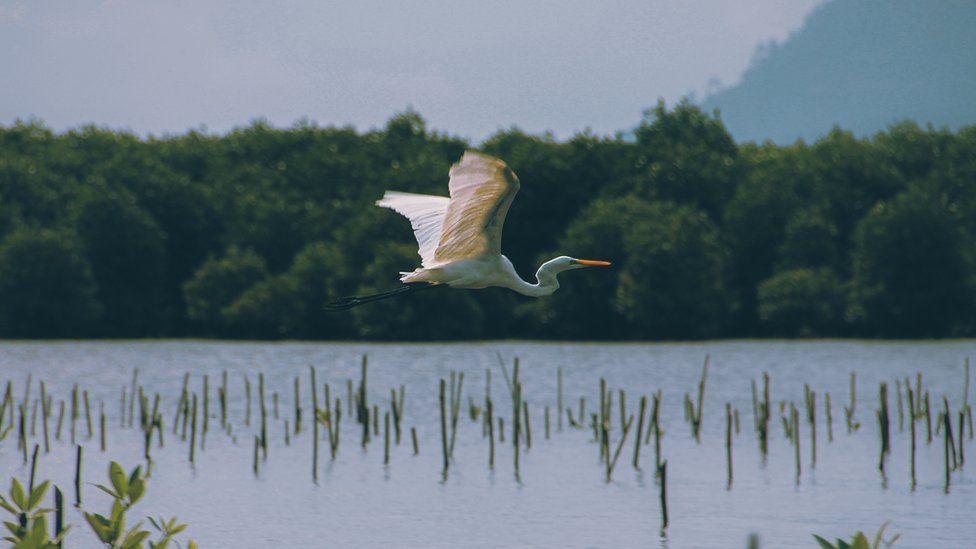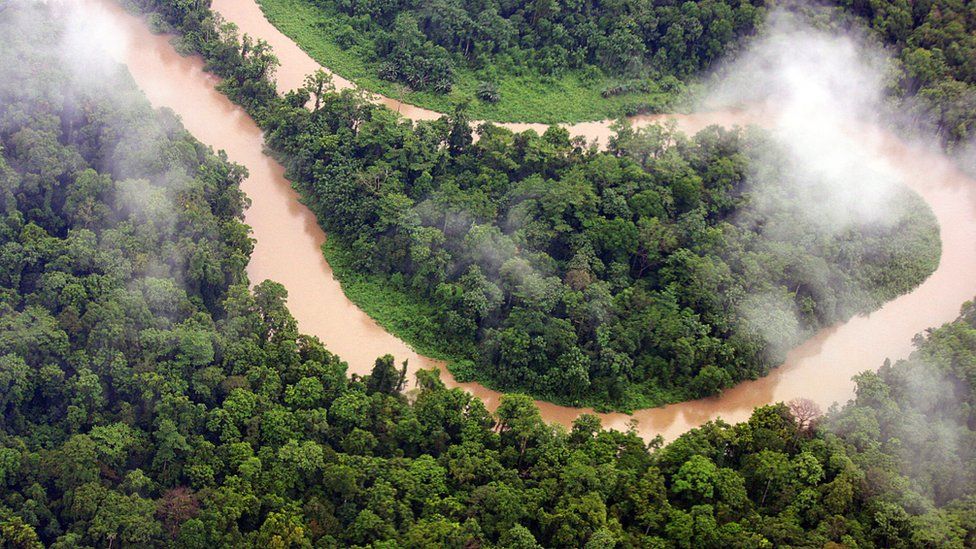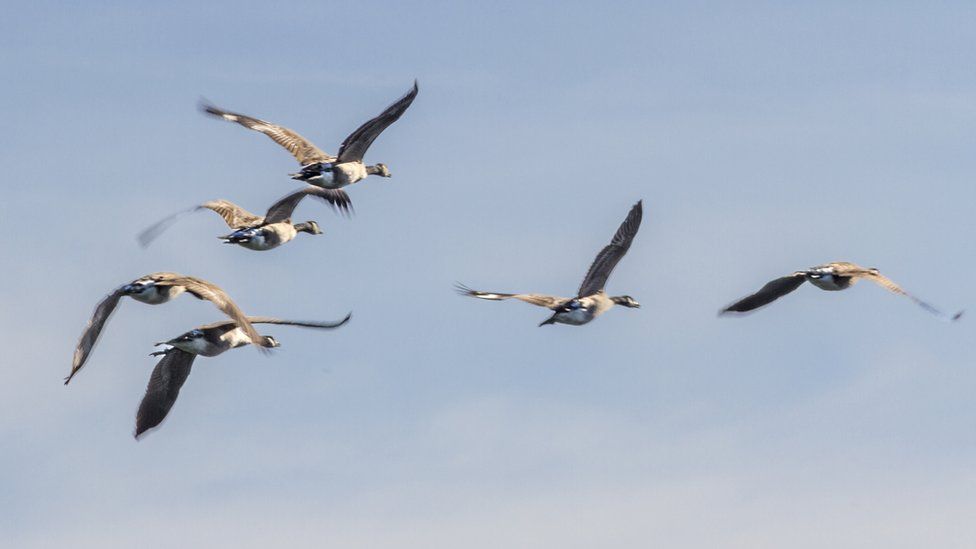Biodiversity targets may be slipping out of reach - 2023

The researchers studied more than 600 species of birds and mammals
Ambitious targets to halt the decline in nature may already be slipping out of reach, a study suggests.
Scientists say the effects of climate change and habitat loss on animal populations have been underestimated.
They say bringing back wildlife may take longer than expected and that unless we act now global biodiversity targets will be out of reach.
In December almost 200 countries agreed to halt the decline in nature by the end of the decade.
They set ambitious goals to halt the loss of biodiversity and protect 30% of lands and seas by 2030.

Clearing of forest and natural land is one of the biggest drivers of biodiversity loss
"What this analysis is highlighting is that it's even harder than we think [to meet the targets]" said Dr Robin Freeman of ZSL's Institute of Zoology in London.
"We need to act more urgently and more quickly, and tackle more things to achieve them."
The study, published in the Royal Society journal, Proceedings B, analysed trends in populations of more than 600 different species of birds and mammals.
The scientists found that past modelling work had largely ignored time lags of decades before the effects of drivers such as climate change and habitat loss kick in.
This means we may be further down the line towards biodiversity loss than we thought.
"We've seen delayed effects of up to 40 years for large mammals and birds," Dr Freeman told BBC News.
"And that means that the longer we wait to take action the longer it will take to see any kind of response."

Some bird populations, such as geese, are set to recover while others face a bleak future
On the plus side, the research suggests immediate action on such things as unsustainable hunting and over-exploitation of natural resources will have immediate and far-ranging benefits.
More plants and animals are going extinct than at any other point in human history.
In December countries signed up to a landmark agreement setting global goals to address biodiversity loss.
A total of 188 governments including the UK committed to global targets for 2030, from reducing global food waste by half to phasing out subsidies that harm biodiversity.




Recent comments